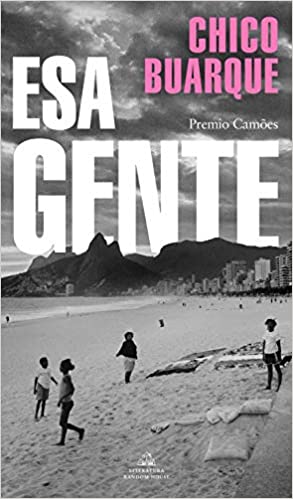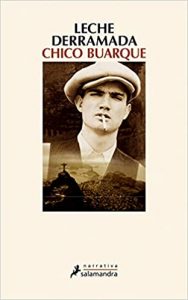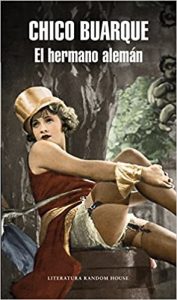In the case of buarque everything would start by composing a song. Unadorned literature tends to come later, when song time is supplemented by a more extensive need for communication. Because beyond the lyric capable of assaulting the emotions, the rational remains parked, more prosaic but equally necessary as food for learning and criticism.
The thing is that Chico Buarque also had a sociological aspect to exploit that he ended up exploring from disparate genres such as test or the novel. Because fiction and reality are complementary spaces if we consider the subjectivity of everything. And to propose a plot with overtones of intrahistory where discovering what happens more internally to the evolution of society can end up transmitting more even than the most sensible of the starting point of the essay.
However, the uniqueness of Buarque is the compendium of virtues of both creative spaces such as music and literature. Because it can be narrated at various times, stopping at the moment that marks the symbol like the chorus of a song, enjoying the gesture or the anecdote. And then return to the narrative thread with that paradoxical sensation that life itself sometimes awakens us.
Top 3 recommended books by Chico Buarque
Those people
A writer forced to find his story. The sensation of the peremptory deadline to find that character extracted from life itself, capable of moving or at least magnetizing with just one detail, a few words, gestures that can extend from the first page to a beautiful ending. The exercise of writing as a vain intention to find the history of stories. Nothing is forced in literature and this book teaches us that if the proper history cannot be written, at least we indulge in fascinating contemplation with its voyeuristic point.
Having been awarded the prestigious Cam AwardõIt is because of his literary career that the celebrated composer, musician, poet and novelist Chico Buarque invites us to peek into the life of Manuel Duarte, a historical novel writer who had his moment of glory in the nineties and now, with bank account in the red, he tries in vain to write the book he owes to his publishers.
While enjoying his peripatetic walks through the elegant streets of his neighborhood, Leblon, or visiting the neighboring favela of Viridal, we cross a Rio de Janeiro that, in an increasingly evident way, bows and bleeds under the lash of social injustice and economic: a black musician shot by the police, a decree that makes the use of firearms more flexible, a violently repressed demonstration or lavish parties of the new political caste flood the newspapers.
Buarque offers us, as a puzzle and from multiple voices and perspectives, his most poignant novel and shows us, with his usual ironic gaze, the tragicomic ramblings of a writer in crisis and the fragmented memory of Bolsonaro's maddened Brazil.
Spilt milk
Bedridden by the weight of age, Eulálio Montenegro d'Assumpção is reeling off the memories treasured in his memory. His fragile body is testimony of a centuries-old existence whose details he recalls in front of his eighty-year-old daughter, Eulália, or whoever is willing to listen to him. The events of his life and that of his ancestors follow one another in no chronological order, interspersed with digressions, tricks and white lies, weaving a fascinating tapestry that condenses more than two centuries of the history of a Brazilian family.
Heir to a powerful line of heroes -his great-great-grandfather arrived from Portugal with the court of King Pedro IV-, Eulálio has seen an immense fortune and the good name of the family vanish. With mad and youthful passion he loved his wife, the sensual Matilde, whose loss he has mourned for eighty years. And now, from his aristocratic perspective of reality, a complex family saga emerges with a captivating voice, both light and exuberant, vivid reflection of an unknown Brazil and away from the clichés that he has given himself to build an image before the world.
A proud and haughty character, but deeply sincere and with a redeeming ability to laugh at himself, Eulálio displays a keen sense of humor that, together with his particular interpretation of things, makes Spilt milk the novel that has established Buarque as one of the most widely read and unanimously valued writers in the contemporary Portuguese literature scene.
The german brother
It seems incredible that in these days of social networks capable of serving as a loudspeaker for every mission no matter how small it may seem, someone as well known as Chico Buarque cannot locate his brother. The mission is then delivered to its literary review as a necessary response for the soul. And so we accompany the author through a more metaphysical search on the identity reflected in those who accompany you and those who leave you ...
Among the many books that line the walls of his house, Ciccio, Chico Buarque's alter ego, finds a disturbing letter dated in Berlin on December 21, 1931. Upon reading it, he discovers that his omnipresent and inaccessible father had a son with a certain Anne. Ernst. But it won't be until years later that you feel the need to know what happened to that half brother. That is when a search begins that will take him a lifetime.
In numerous interviews, the renowned composer, musician, poet and novelist Chico Buarque has spoken about the "German brother" that he never managed to locate. Based on biographical memory and family history, Chico Buarque reconstructs, intertwining reality and fiction, a novel about the obsessive search for an unknown brother, based on the permanent tension between what was, what could have been and pure fantasy . Through literature Chico Buarque approaches his absent brother, and in doing so he has probably written the novel of his life.



